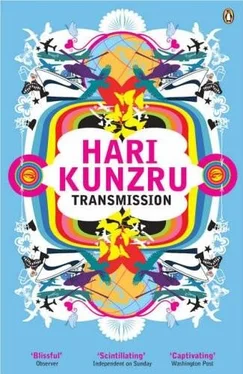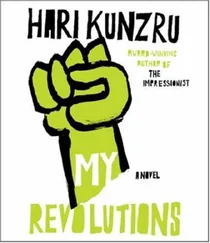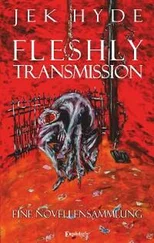A transcript of the so-called Little Lander tape:
VOICE 1 [Arjun Mehta]: Latte to go please.
VOICE 2 [Ramona Velasquez]: Regular or tall?
AM: Tall.
[inaudible]
RV: There you go / That’ll be two thirty-five /
Sugar and lids are over there.
AM: Thanks.
RV: No problem / [inaudible: on a ten ?]/ Have a nice day.
AM: [inaudible]
There is very little, short of cabbalistic letter substitution, that can be done to extract hidden meaning from this exchange. This has not stopped prominent Leela researchers from claiming variously that (a) Velasquez passed some kind of tool or document to Mehta in the coffee cup; (b) she was in the pay of a governmental agency (probably the Bureau of Alcohol, Tobacco and Firearms); or (c) the drop-outs on the tape were caused by the high-frequency electronic data bursts which the Old Ones use in place of human speech.
Despite being labelled a terrorist by governments and media agencies around the world, Arjun Mehta has admirers. According to Julia Schaffer of the Symantec Corporation, who has written extensively on Mehta’s programming techniques, the viruses he unleashed represent ‘a revolution in code’. The range of the innovations in the Leela variant viruses is, she says, ‘simply breathtaking’. Her research group has developed several applications based on Mehta polymorphic engines. ‘He was a black hat,’ she admits, ‘and that’s kind of a shame.’ Pinned to the corkboard by her desk she has Mehta’s picture, next to that of Claude Shannon.
The figures of the outlaw and the unrecognized genius are dear to many in the computer underground, and Mehta (combining both) has become a hero to a younger generation of disaffected hackers who feel their contributions are undervalued by the corporations and misunderstood by an ignorant and hostile public. Judging by the hagiographic tone of postings and zine articles, there is certainly no shortage of people who would be willing to assist the fugitive if he arrived on their doorstep. The supernatural perfection of his vanishing act has only added to his mystique. A series of autonomist tracts written in Italian and signed with his name caused a huge stir in left-wing European political circles. The hope that the genius hacker might also be a revolutionary was so strong in certain quarters that it has survived the revelation that the Leela papers were the creation of a group of Bologna-based radicals, who had appropriated Mehta’s name as a gesture and invited anyone else who wished to use it to do the same. In recent times ‘Arjun Mehta’ has authored statements on the food industry and the World Trade Organization. His Virugenix employee ID photo, the same one Julia Schaffer has by her desk, has been screen-printed on to t-shirts with humorous anti-capitalist slogans. Arjun Mehta, Gap loyalty-card holder and habitué of Seattle Niketown, is rapidly changing shape.
For a long time the police could not explain Kim Sun Hong’s presence in Arjun Mehta’s hotel room. The boy was from a conservative middle-class Korean family, a good student whose main interest was in computer gaming. Nothing in his previous behaviour suggested any propensity for violence, let alone terrorist connections. Questions abounded. Had Mehta met the boy in a chatroom? Was there a paedophile link? Had Hong been coerced into assisting Mehta in his ‘campaign to undermine America’ (Fox News)? Civil-rights groups accused the police of covering up their reckless use of firearms. Korean-Americans demonstrated outside San Diego City Hall. The claim that the teenager had ‘levelled his weapon’ at Officer Corey Studebaker was widely disbelieved.
A breakthrough in the police investigation came only when analysis of mall surveillance tapes recorded images of Hong and another boy following Mehta at a distance. Jordan Lee, a classmate, was identified as Hong’s companion and rapidly broke down under interrogation. The story he told police was so fantastic that for some days they refused to believe it. Could he and Hong, aged respectively thirteen and fourteen, really have been acting as bounty hunters?
The Criminal Investigation Bureau of the Korean National Police Agency substantiated the background to Lee’s tale. Logs subpoenaed from the Boba Fett Game Café did the rest. It seemed that five days before the Riverside raid, a computer centre in Seoul was hit by variant 04 ( rhizomatic ) Leela, not one of the more destructive strains but difficult and time-consuming to eradicate. The incident would barely have registered had the centre not housed the servers for ElderQuest, an online role-playing game vastly popular in Korea.
ElderQuest is set in a fantasy world with the usual furniture of dragons, wizardry, castles and large-breasted barbarian women. Players, of whom there are four million in Korea alone (almost one in twelve of the entire population), join adventuring groups, trying to gain the power and experience points which will allow them to move up in the social hierarchy of the cod-medieval land of Yerba. When not battling an array of monsters, players spend time in various kinds of social interaction. Marriages are contracted. Political factions are formed and dissolved. There is even a legal system, set up to curb the actions of those who abuse ElderQuest’s complicated barter system. Economists have written papers about the evolution and management of the game’s markets. Korean social scientists are starting to look seriously at so-called Virtual World Syndrome, whose sufferers appear conflicted about the value of their real and game-world experiences.
The Leela infection meant that the ElderQuest servers had to be shut down and reset from backups, an operation which took two days and involved some loss of data. Effectively, all the characters operating within the game-world found themselves back where they had been two days previously, minus all experience and attributes picked up in the interim.
This was annoying for many people but disastrous for the Honour Friend Sword Clan. The day before the shutdown their surprise attack had decimated the superior forces of Lord Farfhrd’s Power Blood Pledge Society, gaining them control of Castle Obsidian and a huge quantity of treasure. Now safely in possession of the Axe of Maldoror, S’tha the Muscular had attained the forty-fifth level in Swordsmanship and would henceforth receive tithes from all the lands around the castle and the nearby free city of Bigburgh. It was the greatest victory in the clan’s history. After the reboot the Power Blood Pledge, who now had foreknowledge of the attack, descended on S’tha’s camp under the protection of an Adamantine Shield spell and killed sixteen characters, including S’tha himself, who was reincarnated in Freetown as a first-level apprentice with three gold pieces, a knife and a small leather buckler. S’tha and the Honour Friend Sword were understandably angry.
S’tha (in real life 26-year-old Li Kwan Young, well known to Seoul police) had not simply lost imaginary status and treasure. So popular is ElderQuest that its potions, scrolls, weapons and armour have real-world value: the going rate on eBay for a good-quality summoning spell is over $80. Young, who had amassed an enormous magical armoury (allegedly through extortion of other players), had lost a genuine fortune.
Young wrote several outraged emails to the game administrators. He was told there was nothing they could do. In desperation he and several other players from Honour Friend Sword turned up at the offices of NambiSoft, the game’s owners, to demand the reinstatement of their victory. When security tried to remove them from the building, a scuffle broke out in the lobby and the police had to be called.
By any standards, the following day’s posting to the ElderQuest message scrolls was an escalation. Honour Friend Sword offered fireballs, invisibility lotions, the Stay Wand of Ha-Shek and other game goods to the value of 30,000 gold pieces to anyone prepared to ‘undertake a RL quest’ to ‘disincarnate’ the person who caused the server reset. Mehta’s picture was being widely circulated by the FBI. The amount of the bounty was huge. To the amazement of the police investigators, it appeared Jordan Lee was telling the truth. Every reality-challenged role player in the world had been out looking for Arjun Mehta. He and Hong were just the ones who got lucky. They had skipped school and tailed him to San Ysidro, checking his face against the FBI mugshot. To get the gun, they had traded Tiger Woods’s home phone number with a Thai kid who came into Boba Fett’s to play Starcraft. At the Riverside Motel, Jordan had got scared, and after a whispered argument Hong (who in the previous month had logged 210 hours connected to the ElderQuest servers as Peenar the Stealthy, an eighteenth-level footpad) had climbed through the window alone. At the critical moment Jordan was waiting on a street corner two blocks away. He did not see Mehta at any point after he came out on to the balcony.
Читать дальше











